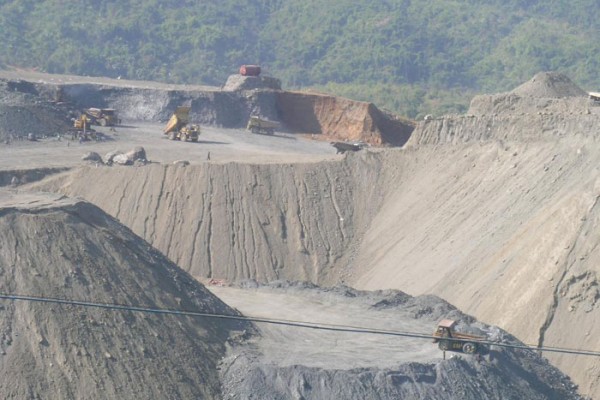An estimated group of more than 500 civilians in the Kachin Independence Organization (KIO) controlled section of the Hpakant jade mining district, fled their village over the weekend to escape Burma army troops who have moved into the area.

The large exodus in western Kachin state saw hundreds of local residents and migrant miners flee from Maw Mau Bum village to nearby Hpakant town. By Sunday afternoon most of the group had taken shelter in the town's Baptist and Catholic churches, said a volunteer who assisted in transporting the escapees. The local chapter of the Kachin Baptist Church is said to be hosting about 200 people.
A local villager told the Kachin News Group that the villagers had fled from their homes when they learned that the Burmese army was coming because of the army's brutal record for targeting civilians in conflict zones.
According to the villager a Burma army column with more than 100 troops has taken up positions near Maw Mau Bum ahead of an expected attack on nearby posts held by the Kachin Independence Army's 6th Battalion. Situated high in the mountains, Maw Mau Bum, is considered a strategic location for the KIO.
Over the past few weeks the Burmese army has reportedly sent large numbers of reinforcements to Hpakant. Despite the recent troop build up there has yet to be any major clashes in the area for the past few months.
The last major incident to occur in the Jade mining region came on May 31, when artillery shells launched by the Burma Army’s Infantry Battalion No. 16 hit civilians in Seng Tawng, the second largest town in the Hpakant area. The attack killed one civilian and injured six others.
The Hpakant region is the world’s only source of true Jadedite. As part of its agreement with the central government, the KIO during its 1994 to 2011 ceasefire did not collect tax from Jade mining in Hpakant, enabling Burma's military regime to earn billions in revenue from the lucrative industry. Following the collapse of the ceasefire last year the KIO again returned to its per-ceasefire practice of taxing the jade industry



